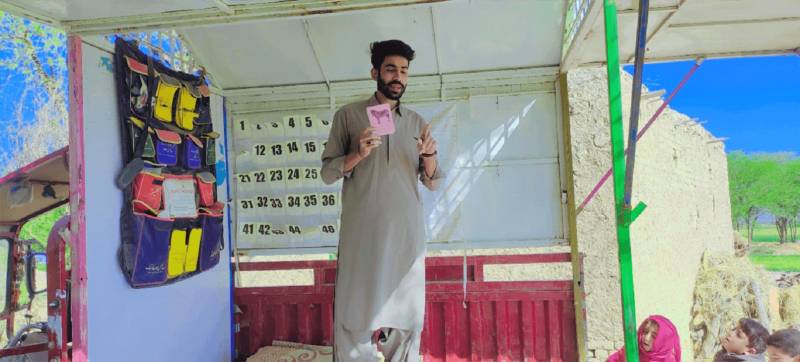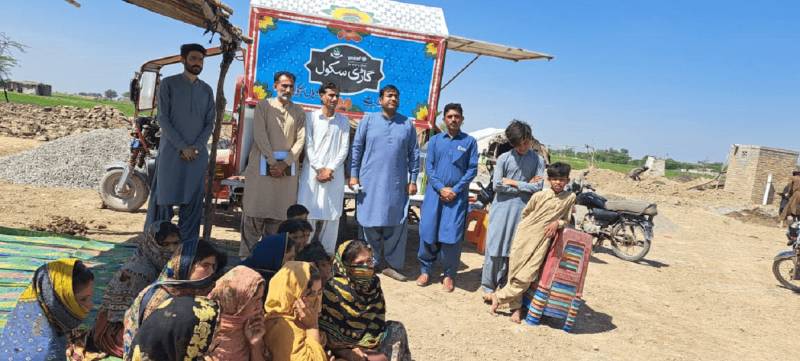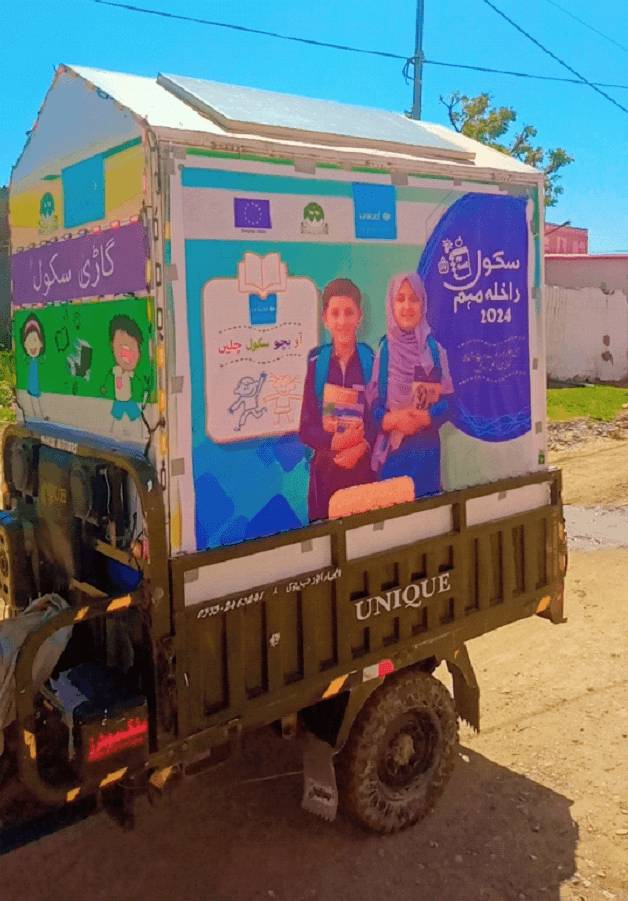
The floods of 2022 devastated large parts of Balochistan. Over the past 21 months, I have launched various social efforts in the Jaffrabad region of the province, including rehabilitating houses to restore life there.
As part of these efforts, on March 8 this year, Women's Day was formally celebrated with many women in Jaffrabad. It was a first for many women in the region.
In that spirit, I am thrilled to announce that UNICEF Balochistan has agreed to join hands with the rehabilitation efforts and has decided to help bring education to one of the villages where we have been building disaster-risk-reduced homes. Consequently, children of the Hindu Ghot will no longer go without education.
Education is a fundamental right of every Pakistani citizen. Article 25-A of the Constitution guarantees this right as a basic human right. Article 25-A affirms: "The state shall provide free and compulsory education to all children of the age of five to sixteen years in such manner as may be determined by law."
But like many things guaranteed to the citizens of Pakistan, education and other life-altering fundamentals promised in this backwater of Balochistan exist merely as words in the Constitution.

When education and any form of literacy are absent from a section of society, the challenges become complex and critical. Civil society and development organisations can try to do what they can. In Ramadan, a month of deep reflection and bonding with those who have few opportunities, sharing the wealth of education with those who have lost everything is a welcome development.
The necessary strategies to address the education crisis require a psycho-social approach integrating learning, teaching and pedagogical processes. The UNICEF has developed an innovative crisis education model, called Gaddi schools. Such schools provide a one-window, child-friendly education intervention for children not in school.
UNICEF's Gaddi schools are essentially small vans pulled by motorbikes or other small vehicles. These mobile schools contain all the necessary teaching and learning materials and can travel from village to village.

The driver of this contraption is a teacher trained to engage with children who have never seen the inside of a school.
UNICEF started by providing one of these child-friendly Gaddi mobile schools to the Hindu Ghot village, where I am currently working with the Strengthening Participatory Organisation (SPO) to rehabilitate 25 residents/ households and rebuild their lives with disaster risk-reduced homes.
This is no small task. Disciplining and developing the attention capacities of children to sit, concentrate, absorb information, comprehend, and digest concepts and ideas is a taught skill learned over time. The capacity to impart these building blocks of learning is even more challenging in deprived communities, which face many more vulnerabilities.
As we danced and celebrated 'Aurat ka din,' the words of Rakhi Bibi, a mother of a daughter, continued to ring in my heart: "Give us education, baji. I want to understand better, and I want my daughter to be stronger than I am."
Their desire to be educated is so loud and evident. It breaks my heart that these pleas have fallen on deaf ears for generations.
I am very excited to see the transformation in Hindu Ghot's children in the coming years. GADDI School is a first step towards true resilience development amongst the forgotten citizens of Pakistan.
Please reach out if you would like to donate towards building permanent resilience where there is little. Nilofer.qazi@gmail.com every donation and assistance helps.

